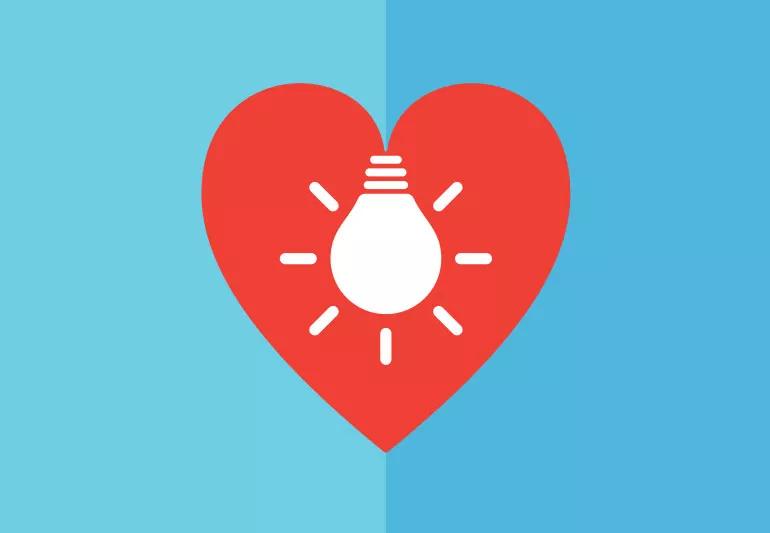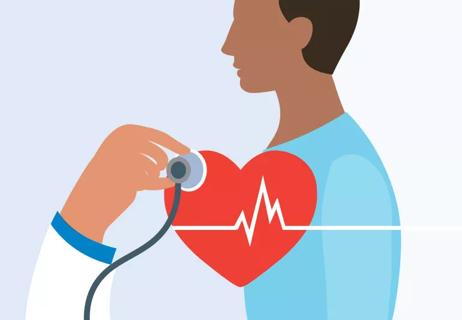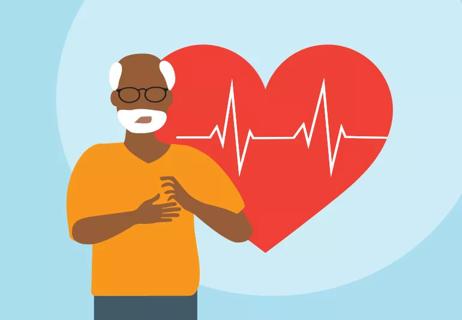What you should know about genetics, cholesterol, stenting and more

Each year, heart disease kills more people in the United States than all types of cancer combined. Most of these deaths result from heart attack in people with coronary artery disease.
Advertisement
Cleveland Clinic is a non-profit academic medical center. Advertising on our site helps support our mission. We do not endorse non-Cleveland Clinic products or services. Policy
“As more and more people adopt a heart-healthy lifestyle and take medications to lower their heart attack risk, deaths from coronary artery disease are dropping,” says A. Marc Gillinov, MD, Chairman of the Department of Thoracic and Cardiovascular Surgery.
Yet myths about heart disease and its prevention persist. Below, Dr. Gillinov corrects 10 common misconceptions.
Genetics sometimes play a role in developing coronary artery disease. “However, 90% of heart disease results from harmful lifestyle choices, including poor diet, smoking, and little or no exercise,” says Dr. Gillinov.
These harmful choices can raise the level of cholesterol and other harmful fats in your blood, increase your blood pressure, and cause you to develop metabolic syndrome or type 2 diabetes — all of which raise your risk of heart disease.
“If you are genetically predisposed to high cholesterol, high blood pressure or diabetes, it’s very important you follow a heart-healthy lifestyle and make medications to control these dangerous risk factors, and avoid or delay a heart attack,” Dr. Gillinov says.
It used to be thought that a large amount of good cholesterol would offset the impact of high bad cholesterol levels, but recent studies have shown this is not the case, according to Dr. Gillinov.
Advertisement
Instead of looking at total cholesterol, which includes both your “good” high-density lipoprotein (HDL) cholesterol and “bad” low-density lipoprotein (LDL) cholesterol, physicians now focus on LDL cholesterol.
Although a high HDL level is certainly good, it means your body may still be depositing cholesterol in your arteries, which can lead to heart attack, stroke and other problems, he explains.
“If your LDL level is very high, you will need a statin or other cholesterol-lowering drug to bring it down. That’s because your liver makes about 75% of the cholesterol in your body, and diet is only responsible for 25%,” Dr. Gillinov explains.
A heart-healthy diet may lower your LDL somewhat, but the addition of cholesterol-lowering medication will be important if you have very high LDL and a history of coronary artery disease.
High blood pressure (hypertension) is called “the silent killer” for a reason.
Hypertension generally produces no symptoms until it causes a heart attack or stroke. You’ll only discover your blood pressure by using a blood pressure cuff.
“It’s a good idea to have a blood pressure reading taken before age 21 — or earlier, if high blood pressure runs in your family,” says Dr. Gillinov. “This provides a baseline for measurements taken throughout life.”
Four different kinds of fats are found in our foods, and not all of them are bad. Artificially made trans fats, also called partially hydrogenated oils, are the worst.
Trans fats, found in many baked goods and processed foods, raise bad LDL cholesterol levels. So do saturated fats, which come from animal products like red meat and butter.
“Replacing unhealthy saturated fats with healthy monounsaturated fats and polyunsaturated fats may actually lower your LDL levels,” Dr. Gillinov says.
“No food will prevent heart disease, although certain diets can,” Dr. Gillinov explains.
So-called superfoods like blueberries, pomegranates, walnuts and fish — while beneficial for heart health — won’t prevent you from developing heart disease.
However, the Mediterranean Diet, which features whole grains, legumes, fish, vegetables, fruit and monounsaturated fats like olive oil, has been shown to lower the risk of heart disease.
To lower your risk of death from coronary artery disease and cancer, you’ll need five or six sessions of moderate to vigorous activity per week.
“You don’t have to be a diehard exerciser or even a weekend warrior to benefit from increased activity,” says Dr. Gillinov. “But you do have to get off the sofa and move. Your heart will benefit from any activity you do, and the more you do, the more you will benefit.”
Take the stairs instead of the elevator, vacuum your house or rake the leaves. Aim for 30 minutes of activity a day — divided into 10- to 15-minute sessions — and your heart will thank you.
Advertisement
When coronary artery disease blocks the heart’s arteries, surgeons can use other arteries to bypass trouble spots (called coronary artery bypass surgery) and restore circulation. Similarly, cardiologists can use stents to prop open blocked arteries.
“While bypass surgery and stenting can help prevent a first or second heart attack and make you feel better, they won’t cure your coronary artery disease,” says Dr. Gillinov.
The disease process that caused the blockages goes on.
“There’s no doubt that coronary artery bypass grafting is major surgery. But when it’s scheduled to prevent a heart attack and performed by an experienced surgeon, the operative risk is less than 1%,” Dr. Gillinov says.
Stenting, which is less invasive than bypass surgery and allows patients to recover faster, is just as safe.
Some people are likely to do better with bypass surgery or with stenting. In these cases, your cardiologist or cardiac surgeon will explain why.
In fact, more women die from heart disease every year than from breast cancer.
Men tend to develop coronary artery disease and have heart attacks at younger ages than women. But after menopause, the risk for heart attack levels out and is the same for women and men.
“The good news is that the chance that a woman will survive heart attack has increased by 56% due to earlier recognition and management of heart disease,” says Dr. Gillinov.
Advertisement
One reason women aren’t always diagnosed with heart disease is that many use their Ob/Gyn for primary care and never get a heart examination. “Women should have a complete head-to-toe checkup with baseline heart exams in early adulthood,” he notes. This allows for risk factors to be identified and discussed before they impact the heart.
Advertisement

Sign up for our Health Essentials emails for expert guidance on nutrition, fitness, sleep, skin care and more.
Learn more about our editorial process.
Advertisement

Eating heart-healthy foods, moving around more and getting quality sleep are a few ways to get started

If you don’t have other symptoms, try using relaxation techniques and vagal maneuvers to calm your heart down

Chronic stress can trigger palpitations, inflammation, angina and other serious heart issues

Yes — and depending on the level of dehydration, you may need emergency care

Research shows a strong association between rheumatoid arthritis and heart issues

Knowing what you can do to prevent or manage heart disease is half the battle

A skipped heartbeat is usually your heart returning to its normal electrical path

Don’t self-medicate with vitamin supplements without consulting a doctor first

Even small moments of time outdoors can help reduce stress, boost mood and restore a sense of calm

A correct prescription helps your eyes see clearly — but as natural changes occur, you may need stronger or different eyeglasses

Both are medical emergencies, but they are very distinct events with different causes